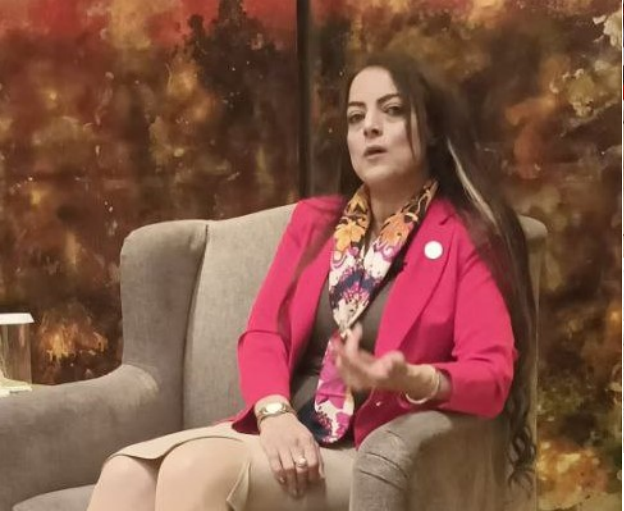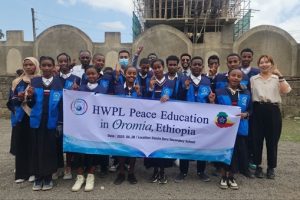
At the Third Forum on Developing Countries and International law held in Beijing on 26 June 2025, Prof. Hajer Gueldich, Legal Counsel of the African Union delivered a keynote address on “Africa’s contribution and evolving role in international law.” On the occasion, she addressed a wide range of issues in the following ways:
Africa’s legal voice: Collective and Influential
It is important to emphasize that Africa’s legal influence is not merely aspirational, it is institutional. The AU, as the continental body representing 55 sovereign Member States, speaks with a legal voice that is both unified and impactful.
Whether through submissions before the ICJ/ITLOS, coordinated treaty positions at multilateral fora, or the adoption of common African positions on global challenges, Africa demonstrates that solidarity can be legally operative, not only political.
In my perspective, this collective voice also underscores the need for reforms in global legal institutions to reflect the demographic and normative weight of Africa. It is untenable that a continent with over 1.4 billion people remains structurally underrepresented in international law-making bodies.
The African Group at the United Nations, the coordination mechanisms of AU Specialized Technical Committees, and the growing assertiveness of African judges at international courts all signal a powerful and rising legal consciousness, one that is reshaping the agenda from the inside.
Within this institutional landscape, the African Union Commission on International Law (AUCIL) plays a pivotal role in the codification and progressive development of international law. As an Organ of prominent African Legal practitioners, established by the AU, the AUCIL has undertaken critical legal studies and normative reflections on themes ranging from treaty law to immunities, environmental law, and the mutual legal assistance between states. These studies have the potential to significantly shape future directions in both African and global legal thought.
Legal pluralism and communal rationality
One of Africa’s enduring gifts to international legal theory is its rich jurisprudence of legal pluralism. Across the continent, customary law, religious law, and formal state law coexist in negotiated, sometimes contradictory, frameworks. This legal polyphony, in my view, challenges the Eurocentric insistence on a unitary legal order and invites a more plural and dialogical conception of legality, one that embraces multiple sources of normativity and the coexistence of diverse ontological understandings of justice and authority.
This is particularly salient when considering the limitations of classical international law in addressing post-conflict societies, pluralistic communities, and transboundary cultural rights. African experiences show us that justice systems rooted in community values rather than adversarial models, can deliver legitimacy and durability in ways the international community has often underestimated. Indeed, courts such as the African Court on Human and Peoples’ Rights and regional mechanisms like the ECOWAS Court have integrated customary and local principles in ways that bridge legal formalism with socio-cultural context.
Ubuntu jurisprudence, which emphasizes restorative justice, community healing, and the interdependence of human beings, is not just a moral philosophy; it is increasingly becoming a normative proposition in transitional justice and peace building efforts. Its influence is seen in the truth and reconciliation models across Africa, which have offered alternatives to adversarial legalism and punitive justice. These models prioritize truth over blame, reconciliation over retribution, and reintegration over exclusion, offering a distinct vision of post-conflict justice that has inspired global actors.
Moreover, the principle of legal subsidiarity, long present in African legal traditions, encourages decision-making at the most immediate level consistent with effective governance. I believe, this principle has profound implications for how we design international legal frameworks in areas like environmental protection, land governance, and indigenous rights.
Legal pluralism also encourages us to question the assumption that international law is only made in Geneva or The Hague. Norms emerge in local assemblies, regional courts, community practices, and customary rituals. This bottom-up view of legality is, in my opinion, essential if international law is to remain relevant to the majority of the world’s population. It invites us to understand international law not as a rigid code, but as a living dialogue among legal cultures, one in which Africa is not a footnote, but a full author.
Towards a new solidarity of the South
At this moment in history marked by geopolitical shifts, ecological precarity, and economic inequalities, the Global South must act not only as a moral coalition but as a legal one. The stakes are rising, and the urgency is real. The interpretation and application of international law are undergoing a seismic transformation. We are witnessing not only the fragmentation of legal authority but a growing perception, rightly held, that international law is being weaponized selectively.
South-South cooperation must therefore move beyond rhetorical alignment. It must be converted into binding legal solidarity into shared institutions, mutual defense of legal positions, and a collective capacity to speak, resist, and shape. In trade negotiations, climate litigation, technology governance, and multilateral reform, our legal strategies must be coordinated, proactive, and grounded in common values.
Africa, with its experience in collective negotiation, may lead in convening a “legal non-alignment movement”, a reimagined multilateralism where rules are not imposed but co-created, where law serves not domination but emancipation. The future of international legality depends on this shift from managed compliance to genuine cooperation.
And we must be honest with ourselves. We are international lawyers. Silence, in the face of egregious injustice, is not neutrality; it is complicity. The atrocities unfolding in Palestine, the deliberate targeting of civilians, the mass displacement and denial of humanitarian aid, these are not just political crises; they are crises of legality. They test the credibility of the entire international legal system. When powerful states apply international law only when it suits their geopolitical aims and remain silent or obstructive when grave breaches occur elsewhere, it sends a clear message: that for some, international law is optional.
This double standard is not new, but it is gaining dangerous traction. It sets a precedent that could dismantle the very norms we claim to uphold. It reinforces a world order where legality is determined not by law, but by force. And this, I believe, is a direct threat to the Global South, whose security, sovereignty, and sustainable development depend on the equal application of international law.
I believe, this moment calls for new legal architectures: permanent legal advisory hubs among Global South countries, deeper cooperation between regional courts, and standing coalitions in multilateral treaty negotiations. It also demands that we decolonize international legal education and diversify representation in global legal institutions, not as a matter of charity or symbolism, but as a condition for legitimacy.
Let us not forget that cooperation among developing countries is not simply about catching up; it is about rebalancing, rethinking, and reconstituting the legal order to reflect the diversity of our human community, and to ensure that the law is not merely a shield for the powerful, but a voice for the vulnerable.
Let me end with a provocation, one that I hope will stay with us long after we leave this room. What if Africa was not the exception, not the footnote, not the latecomer to international law, but its very future? What if the voices from Addis Ababa, Tunis, Dakar, Kigali, and Lusaka are not mere echoes in global legal chambers, but bellwethers of a new era?
In my view, this is not a rhetorical flourish. The truth is that the international legal order is at an inflection point. We are witnessing not only a crisis of enforcement but a crisis of legitimacy. The double standards that govern the application of international law today are not just technical inconsistencies; they are moral ruptures. The Global South sees them. Africa lives them. And I believe we must respond to them, not only with protest, but with proposal. Not only with critique, but with construction.
When international law fails to address the mass suffering in Gaza, Sudan, Democratic Congo with the same urgency that it applies elsewhere, when international humanitarian norms are blatantly violated with impunity, when global institutions cannot enforce even the most basic rules of protection, what does that say to young African jurists, scholars in the Caribbean, Pacific legal advocates? It says: the law is not for you.
We must change this narrative. Because the future legitimacy of international law depends on its ability to speak equally to all peoples, to protect every civilian, and to restrain every power, not just the weak. Africa and the wider Global South must become not only authors of legal texts, but architects of legal systems.
We need new doctrines, new courts, new precedents, and yes, new philosophies. We must draw from our own traditions: from the consensus of the palaver tree, the pluralism of customary justice, the compassion of Ubuntu, the Pan-African ideal of shared sovereignty. These are not historical curiosities. They are living contributions to the global legal commons.
Editor’s Note: The views entertained in this article do not necessarily reflect the stance of The Ethiopian Herald
BY ADDISALEM MULAT
THE ETHIOPIAN HERALD SATURDAY 28 JUNE 2025





